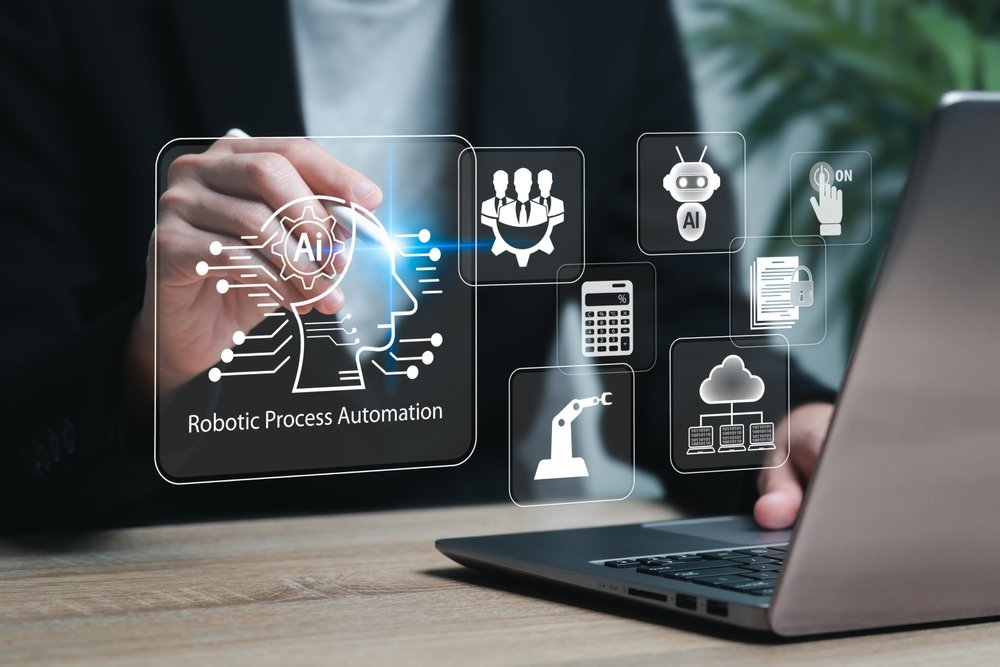What is the future of HR automation?

As technology continues to reshape the modern workplace, HR automation is becoming an indispensable tool for organizations worldwide. The automation of human resources processes, driven by advancements in artificial intelligence (AI), machine learning (ML), robotics, and cloud-based solutions, is transforming how businesses manage their workforce. From streamlining administrative tasks to enabling data-driven decision-making, HR automation promises to enhance efficiency, improve employee experiences, and allow HR professionals to focus on strategic initiatives.
But what does the future of HR automation hold? This article explores the trends, opportunities, and challenges shaping the next phase of HR automation and its impact on organizations.
"The future of HR automation lies in intelligent systems that not only streamline operations but also elevate the employee experience and drive strategic business outcomes."
Richard Branson
Introduction to HR Automation
HR automation leverages technology to streamline and enhance core HR functions, reducing the need for manual processes. Areas like payroll, recruitment, compliance, and performance management are increasingly automated to boost efficiency, minimize errors, and save time. This shift allows HR professionals to concentrate on more strategic activities such as talent development, employee engagement, and driving organizational growth. As technology evolves, HR automation is becoming more sophisticated, opening the door to greater innovation and more impactful workforce management solutions.
Current State of HR Automation
Today, many organizations have embraced basic HR automation tools to manage routine administrative tasks more efficiently. These solutions help reduce manual effort and improve accuracy across everyday functions.
Common tools include Applicant Tracking Systems (ATS) for automating recruitment, payroll software for timely compensation, self-service portals that empower employees to manage personal data and leave requests, and performance management systems that simplify appraisals and goal tracking.
While these tools have enhanced operational efficiency, the future of HR automation lies in more advanced technologies. The integration of AI, predictive analytics, and intelligent automation is set to transform HR functions, enabling smarter decision-making and a more personalized employee experience.
Emerging Technologies Driving HR Automation
Emerging technologies are transforming value-added HR services by improving efficiency and decision-making. AI and Machine Learning enable intelligent features like resume screening, personalized training, and sentiment analysis. RPA automates repetitive tasks such as data entry and compliance reporting, freeing HR for strategic work. Cloud-based solutions offer real-time data access, enhancing collaboration and scalability. Meanwhile, IoT devices help monitor workplace conditions, ensure safety, and track attendance in real time.

Benefits of Advanced HR Automation
-
Efficiency Gains Automation reduces manual effort and processing time, allowing HR teams to operate more effectively and focus on strategic, value-driven tasks.
-
Smarter Decisions AI and analytics offer actionable insights that support informed, data-based decisions across recruitment, performance, and workforce planning.
-
Employee Experience Automated systems streamline onboarding, benefits, and daily HR tasks, delivering a smoother, more satisfying experience for employees.
-
Scalable Solutions HR automation tools easily adapt to business growth, ensuring consistent operations and performance across teams and locations.
Also Read: What are the 7 HR processes?
Challenges in the Future of HR Automation
While the future of HR automation offers significant benefits, it also presents several challenges that organizations must address. Data privacy and security are critical, as increased reliance on digital systems requires strict adherence to laws like GDPR and HIPAA to protect sensitive employee information. Integrating new technologies with existing systems can be complex, often requiring time-consuming training and workflow adjustments. Workforce resistance is another hurdle, as employees may fear job displacement; clear communication about the value and purpose of automation is key to gaining acceptance. Additionally, the high cost of advanced automation tools can be a barrier, particularly for small businesses with limited budgets.
Impact of HR Automation on the Workforce
As HR automation advances, the roles and responsibilities of HR professionals will continue to evolve. Upskilling and reskilling will become essential, with a growing emphasis on analytics, technology, and leadership to support more strategic functions. While routine administrative roles may decline, new opportunities will emerge in areas such as HR technology management and employee experience design, reflecting the changing landscape. Additionally, automation will enhance collaboration by enabling seamless communication and coordination across teams and departments, further improving organizational efficiency and alignment.
How Organizations Can Prepare for HR Automation?
To implement HR automation effectively, start with a needs assessment to pinpoint processes that are inefficient or error-prone. Choose technology that fits your organization’s goals, scales easily, and integrates well. Train HR teams to use the tools and understand the value of data analytics. Clearly communicate the benefits to build support among employees. Finally, monitor performance regularly and adjust your approach to ensure continued success.
Case Studies of HR Automation Success
Real-world examples highlight the impact of HR automation across industries. A national retail chain adopted AI-powered recruitment tools, reducing time-to-hire by 30% and improving candidate quality. A healthcare provider automated payroll and compliance, cutting administrative costs by 25% while boosting accuracy. Meanwhile, a tech company leveraged predictive analytics to identify employees likely to leave, enabling targeted retention efforts that lowered turnover by 20%.


Future Trends in HR Automation
The future of HR automation will be shaped by a range of advanced technologies that enhance both efficiency and employee experience. AI and machine learning will streamline recruitment by matching candidates to roles based on skills and fit, personalize development through tailored training, and apply sentiment analysis to monitor engagement. Predictive analytics will become central to HR strategy, helping forecast turnover, identify skill gaps, and anticipate performance trends. Chatbots and virtual assistants will offer real-time HR support, from explaining benefits to managing onboarding and interviews. Blockchain will boost transparency and data security by verifying credentials, maintaining secure records, and enabling global payroll solutions. As remote and hybrid work models grow, automation will also support virtual onboarding, training, productivity monitoring, and cross-border compliance.
Conclusion
The future of HR automation is poised to transform the way organizations manage their workforce. Emerging technologies like AI, predictive analytics, and blockchain will enable HR professionals to deliver more strategic value, enhance the employee experience, and drive organizational success. While challenges such as data privacy and workforce resistance must be addressed, the benefits of HR automation far outweigh the drawbacks.
Organizations that embrace HR automation and invest in the necessary tools, training, and infrastructure will be better equipped to thrive in an increasingly dynamic and competitive business environment. The future of HR automation is not just about replacing manual tasks—it’s about reimagining the role of HR as a strategic partner in achieving long-term success.






